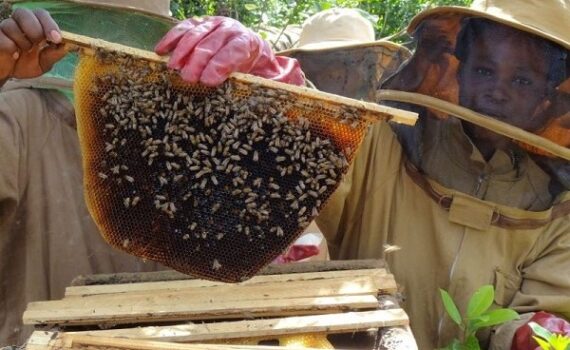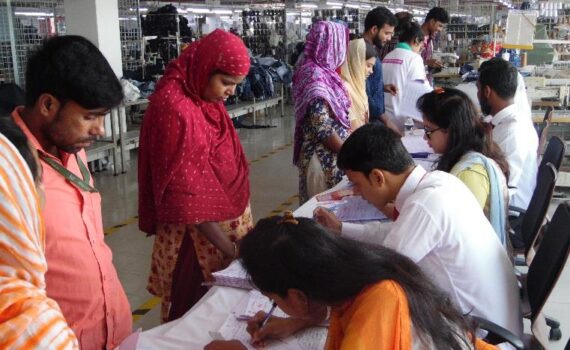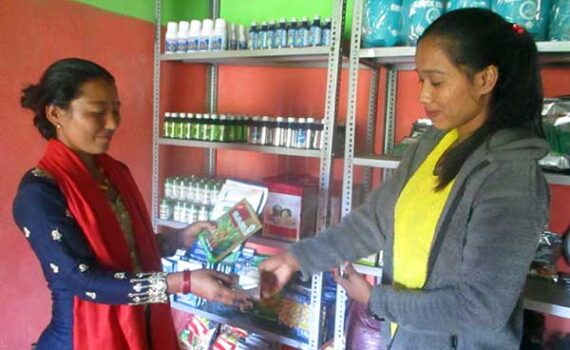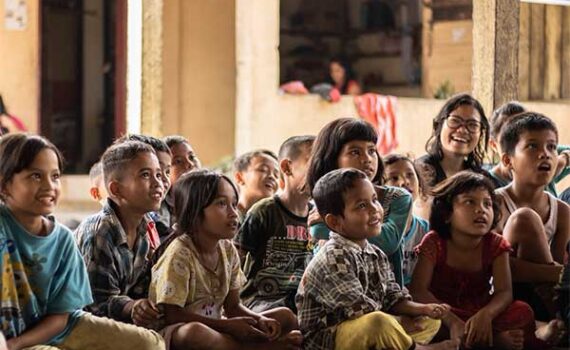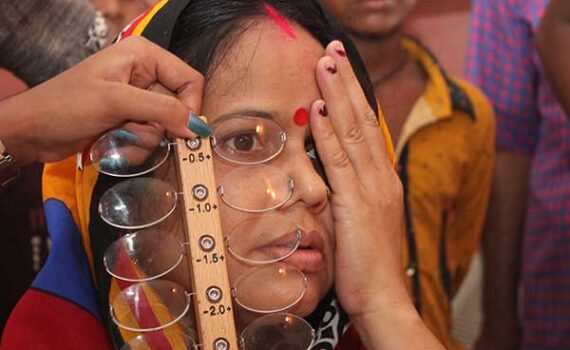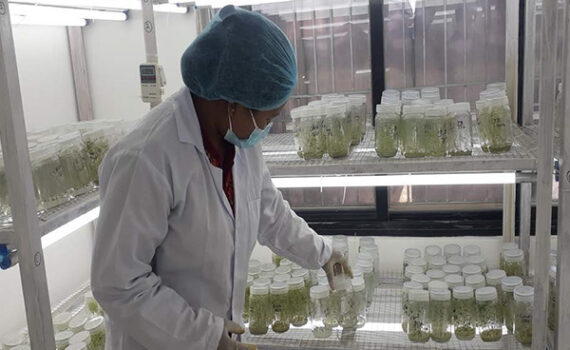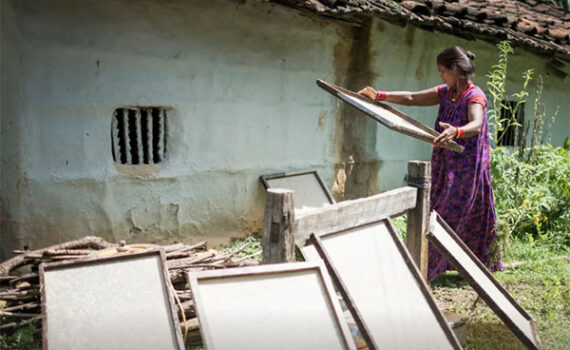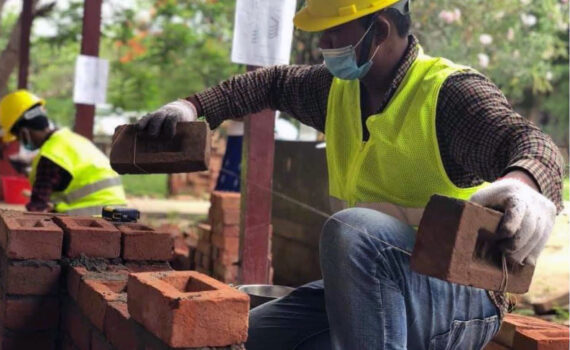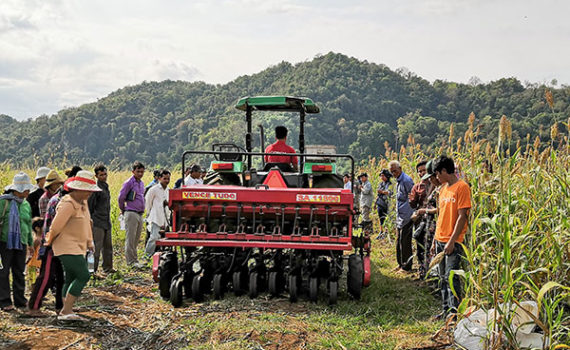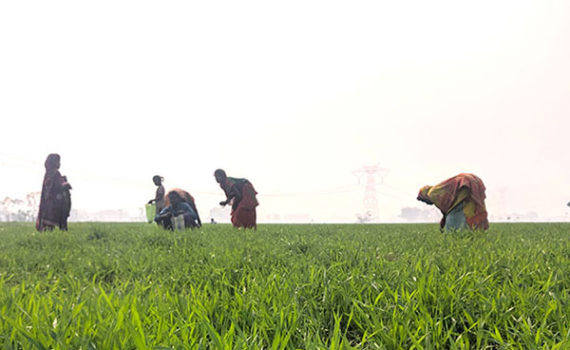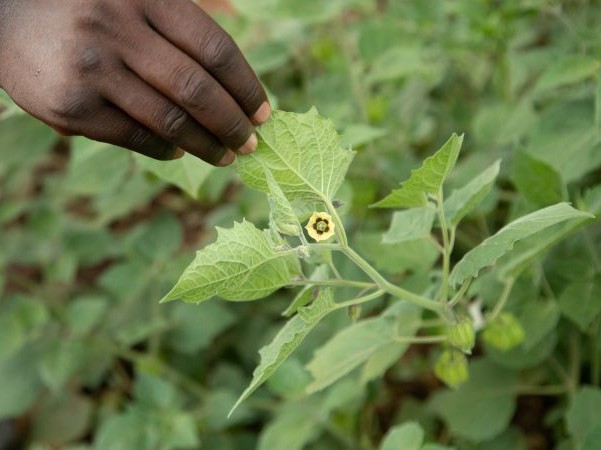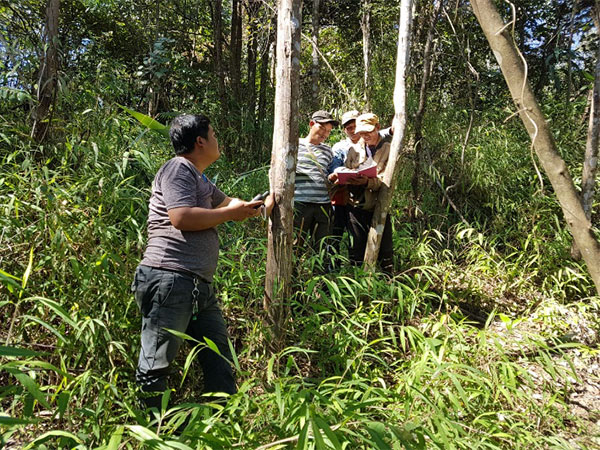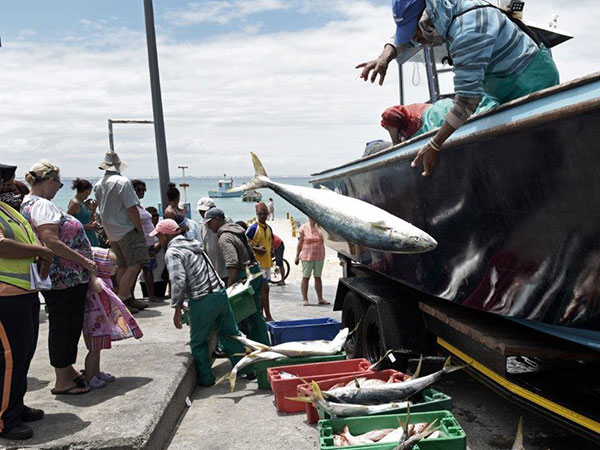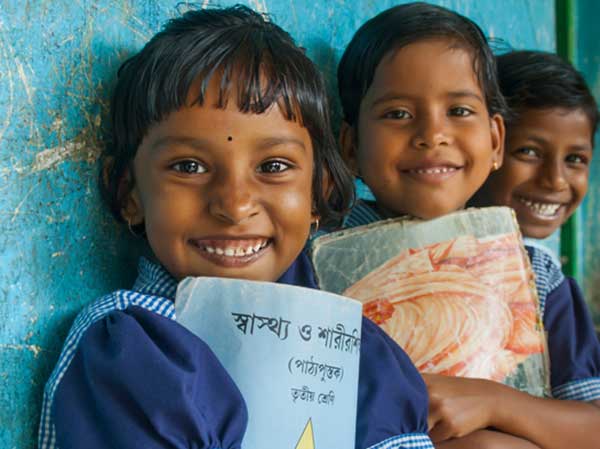Swisscontact's “Dynamic Markets - Sustainable Cocoa and Honey” project supports smallholder farmers and beekeepers in Uganda in the production of cocoa and honey. This enables them to significantly increase their production volumes and the quality of their products, which gives them access to regional and international markets.
Projects international archive
Here we present a selection of former international projects:
The textile industry in Bangladesh employs over four million workers and was largely cash-based until a few years ago. Workers need access to formal financial services such as savings, insurance and credit products. This will enable them to cushion financial shocks and achieve savings goals. In addition, interested women receive training in entrepreneurship.
Smallscale farmers in remote areas in Nepal jointly shift to market-orientated agriculture. Among other things, they receive technical support for production and help in marketing selected agricultural products. The establishment of cooperatives is intended to create stable value chains for fruit, vegetables and livestock, thus securing the smallholders' income in the long term.
The Aquila Aurea Foundation supports underprivileged children, especially half-orphans and orphans, in Indonesia through various means. One of the main focuses is on the school education of the children. In addition, however, the nutrition of the children is ensured or emergency aid is provided after natural disasters.
The goal of OneDollarGlasses' activities is to provide people in India with continuous basic optical care and to enable them to purchase high-quality and individually fitted eyeglasses. Interested people can participate in a self-developed training as an optician.
Helvetas' InELAM project further develops the successful ELAM project (2017-2020). It promotes the establishment of small businesses in Nepal with local resources and on the basis of developed value chains and market analyses. In this way, the potential of returnees and remittances from emigrated workers can also be used optimally and jobs can be created in the home country.
ELAM successfully supported the establishment of small businesses in Nepal in 2017-2020. The beneficiaries were not only able to significantly increase their own income and free themselves from poverty. They also created additional jobs and thus permanently improved the situation on the domestic labor market.
The project Skills 4 Employment S4E provides young people in Myanmar with qualified vocational training. This gives them the necessary professional, entrepreneurial and personal skills to subsequently find permanent work or become self-employed. Currently, the S4E project successfully offers training in the following areas: masonry, motorcycle repair, hair dresser and tailoring.
MIGIP is a project by Swisscontact. The aim is to increase productivity in agriculture through the use of innovative technologies. The project focuses on soil treatment, harvesting and storage. Required are approaches that farmers can afford and that allow them to increase their yields and produce sustainably in the longer term. This will give Cambodia’s farmers new employment and income opportunities, enabling them to lift themselves out of poverty permanently.
Pragya helps small-scale farmers in remote mountain villages to establish a sustainable livelihood. Due to the extreme seclusion of the villages and the difficult weather conditions in the Himalayas, the people there live in poverty and are marginalized in society. Pragya brings development and progress to the regions and therefore reduces poverty permanently. New cultivation methods secure the harvest and open up new markets with medicinal and aromatic plants.

